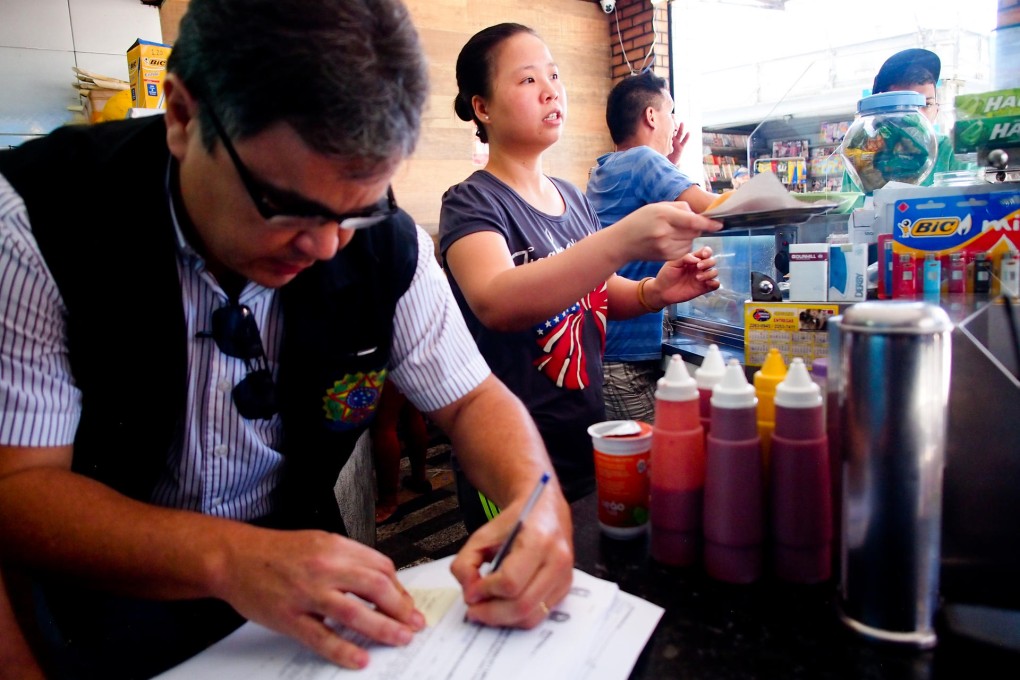Urban slavery and filth uncovered as Brazil cracks down Chinese migration
Dozens of businesses targeted by inspectors in pre-Olympic Rio de Janeiro, as local authorities describe filth and slave-like working conditions

As soon as Li Yan saw the inspectors from the Labour and Health ministries enter her cafeteria in Rio de Janeiro, she knew there would be trouble.
"I have been living in Brazil for seven years, and I never had problems. I came here to work", she argued in a fluent Mandarin after the raid on her centrally located snack bar.
Officials descended on her premises as part of a crackdown on "urban slavery and human trafficking" launched last week in the Brazilian city. About 80 businesses are due to be inspected, and more than a third are thought to be Chinese-run cafeterias and fast food restaurants, which authorities believe could be harbouring illegal Chinese migrants kept in slave-like conditions.
Businesses successfully prosecuted face fines of up to US$25,000.
Accompanied by TV reporters and photographers, officials found what they called a "horrific scenario" of filth and health violations at Li's premises. Two Chinese workers were arrested.
"A cat was sitting on the same table in which they were preparing shredded chicken to produce snacks. The Chinese owner said the animal was used to hunt rats, but the cat could defecate and urinate in the food. Insects were just everywhere", said Fabio Domingos, an official of the Brazilian consumer protection agency.
On the second floor of the cafeteria, inspectors uncovered a three mattress room - without windows and a ceiling height of barely one metre - in which three Chinese employees were allegedly living.